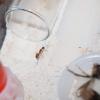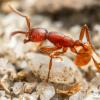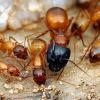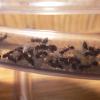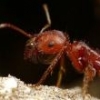Camponotus is a large genus, and each species has its own needs; some camponotus are exclusively wood dwelling, while others are primarily ground dwelling for instance. Different species prefer different nesting environments and formicarium types. I don't think there is a "one nest works for all species" formicarium for Camponotus, unless you consider vivariums. Not to mention the range of natural microfauna unique to each species, which is largely absent in captive environments. Because of this, specifying natural care to each species is something that would definitetly help lower mortality rates.
Since no ant keeper keeps ants the same way (ie. feeding the same food from the exact same sources), saying you keep a range of species well is quite subjective, although as has been pointed out, there are some species which seem to be more suited for captivity in general.
Leave the Road, take the Trails - Pythagoras
Utah Ant Keeping --- Here
DIY Formicariums and Outworlds --- Here
Honeypot Ant Journal --- Here
Photo Album --- Here
Videos --- Here




